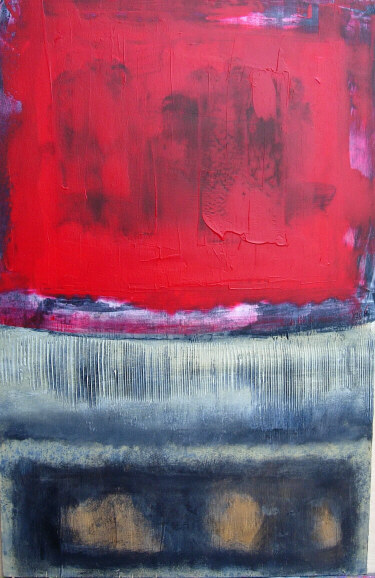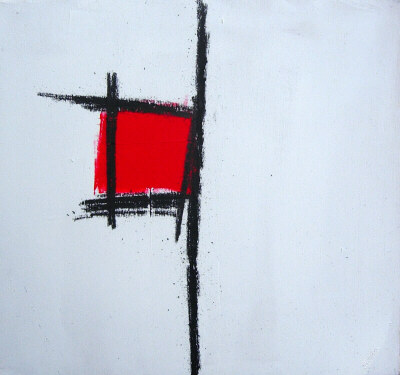 Bruce Lokeinsky
Bruce LokeinskyClick here for a glossary.
My first summer in Yeshiva was coming to an end. The Yeshiva was mostly empty, with some of the bochurim going to various Lubavitch summer camps to work as counselors. I was 'recruited' for such a position by a Rabbi in Connecticut, and in my early naive selfsacrifice, thought I should perhaps go. I had thought that here is an opportunity for me to help other Jews, not just myself, not to be a tzaddik in peltz, sitting in yeshiva all summer working on myself. I felt, with a guilt that would become familiar, that the Rebbe's requirement for mesirus nefesh obligated me to take the offer. But I spoke to Rabbi Wilner about it and he said that I ought to stay here in the Yeshiva and learn. The Yeshiva had summer activities organized, the swimming pool was open and softball games were played on the Yeshiva's expansive grounds. So I stayed, though I didn't participate in any of the sports. I didn't want to waste time from learning, and I wasn't very good at sports anyway. I did get ribbed by some of the more active bochurim as they went out, with advice like 'recreation is also part of serving Hashem,' which was true, but I just wanted to learn, to catch up, especially to learn as much practical halacha as possible, so I could know all the rules and not make mistakes in daily ritual practice.
A couple of my roommates, Yosef and Moshe, came back from the summer early. The more intellectually advanced and ambitious students started preparing for the new year's seder in Lubavitch yeshiva, and began learning that year's mesechta gemara. Others studied various Chassidic ma'amarim relating to tshuvah, in preparation for the Aseres Y'mei Tshuvah in the soon coming Tishrei. Walking around the zal one day, probably looking like I didn't know what to do, and wanting to be included, I was invited by Yosef and Moshe to learn some Chassidus with them. I was very excited that they had asked me to join them, since they were on a much more advanced level than me. They were starting to learn a passage on confession and tshuva from the "Derech Mitzvosecha" (The Way of Your Commandments) by third Lubavitcher rebbe, the Tzemach Tzedek.
The book explained, in relatively short articles, the inner spiritual content of some the mitzvohs according to Chassidus. It wasn't original material; it was mostly based on explanations in ma'amarin of the Alter Rebbe and notes by his son, the Mitteler Rebbe. In it, mitzvahs are compared to the 'limbs of the king,' and a sin is like an injury to this supernal body. There are three steps in healing the injury. The first step is to repair the damage, so that the supernal light no longer leaks to the realm of the kelipot, the forces of evil. The second is to detach the kelipot from the supernal vessels, which is done by the tshuvah and regret. The last step is to remove from the kelipot the great flow of light which has been captured, which requires contrite verbal confession. The kelipah's body, in the Chassidic understanding, is created by the action of a sin, and its soul through the desire of the heart for the sin. Thus the soul of the sin is destroyed by the regret accompanying the verbal confession, as regret is the uprooting of the heart's desire for the sin. And the body of the kelipah is destroyed by the verbal confession itself.
This started me thinking. Whatever it was that grabbed me in my nocturnal emission dream, had a body, a spiritual body; I felt it physically. Since the kelipah's body is destroyed by the verbal confession, I reasoned, the next time I have this sort of dream, I'll say the confession during the dream to destroy the kelipot trying to make me have a nocturnal emission.
The next dream came soon enough. This time, there weren't any images of the Rebbe, or any images at all -- but I came into a waking dream state with an swollen erection, and the beginning feelings of an ejaculation. Quickly, I started striking my chest with my fist, as is done during prayer, while saying each of the twentytwo confessions alphabetically. I didn't even get past the third confession, "ashamnu, bogadnu, gazalnu," when the sensation of a grip on my penis and the feeling of impurity ended. I had destroyed it! The severest sin that you could do accidentally, and I had discovered how to overcome it! I thought that now I could go higher and higher in my dedication to God without stumbling on this thing any longer. I even told Rabbi Wilner, who was quite impressed, in his usual genteel but warm way of not allowing yourself an opening to express your pride. But the next Thursday, in his middos lecture, before all the bochurim, he was discussing the various levels of service that bochurim were manifesting in the Yeshiva. He started at the lowest, those who couldn't even get out of bed in the morning, and only concerned themselves with their own needs outside of the Yeshiva, up to those who were making great progress in their learning, up to, without mentioning my name or looking at me, the one who had the evil thing come to him and had conquered it! I tried to focus my will away from selfsatisfaction by looking puzzled about whom he was speaking.
But the method didn't always work. The next time a dream came, I was so deeply asleep that I all I could do was make a bare attempt to think the first few words of the confession, and before I could reach a level of wakefulness where I could say the confession aloud, I had a keri. Actually, I was never able to repeat this feat again. Sometimes I would wake up with underwear stuck to my groin, with only a troubling, vague recollection of the ejaculation. Often times there was a part of my soul, my animal soul according to Chassidus, which craved the period of deep sleep when a keri would occur, looking forward to the coming physical release, which was hard to ignore, even if I didn't have an orgasm accompanying it.
 There were various Jewish legends about what happens you have a nocturnal
emission. Many say that Lilith comes, a succubus to take your semen and create
demons with it. A Chassidic text, a ma'amar of the Frierdiker Rebbe, speaks
about the thoughts that a man entertains as being like a spider spinning a web
in your brain, and when the web is complete, it creeps to the center and sucks
empty your mind. Such topics were never, ever discussed in class or by the
bochurim amongst each other. You never even said the word 'keri' or the phrase
'shichvas zerah l'vatalah,' even if you reading it from a Jewish text out loud,
you would say it with a euphemism, "that sin" or something similar. To talk
about such things, it was said, would bring them upon you. The attitude was:
Forget about it, all of it, the act, the sin, the guilt. Don't dwell on it.
Don't read up on it, and don't worry about it. But it was hard not to. There
were so many places it was mentioned, in the Kitzur Shulchan Oruch, in the
siddur, in the prefaces to Tehilim, in the Tanya, throughout Chassidus. In the
repentance literature it was referred to by a euphemism: chotas na'arim, the sins of youth. There were so many mystical threads, tempting me to explore them.
There were various Jewish legends about what happens you have a nocturnal
emission. Many say that Lilith comes, a succubus to take your semen and create
demons with it. A Chassidic text, a ma'amar of the Frierdiker Rebbe, speaks
about the thoughts that a man entertains as being like a spider spinning a web
in your brain, and when the web is complete, it creeps to the center and sucks
empty your mind. Such topics were never, ever discussed in class or by the
bochurim amongst each other. You never even said the word 'keri' or the phrase
'shichvas zerah l'vatalah,' even if you reading it from a Jewish text out loud,
you would say it with a euphemism, "that sin" or something similar. To talk
about such things, it was said, would bring them upon you. The attitude was:
Forget about it, all of it, the act, the sin, the guilt. Don't dwell on it.
Don't read up on it, and don't worry about it. But it was hard not to. There
were so many places it was mentioned, in the Kitzur Shulchan Oruch, in the
siddur, in the prefaces to Tehilim, in the Tanya, throughout Chassidus. In the
repentance literature it was referred to by a euphemism: chotas na'arim, the sins of youth. There were so many mystical threads, tempting me to explore them.
Eventually, though, the guilt and shame left, and I tried my best not to think about it at all. Of course, every few weeks, I would have a keri, but never with such a clear and disturbing dream. I'd have a keri in the middle of the night, and awaken in the morning only aware that something had happened in my deepest sleep, at the barest tip of my consciousness, like an old story. I couldn't remember any detail.
As I settled down in Yeshiva, and became comfortable with being frum, the freshness of my past sins faded. The thrice daily confession became rote, memorized words from the siddur, and I couldn't ever again get overwrought with guilt from this recurring sin. As keris became routine, I justified my lack of regret by likening myself to a an infant, not yet toilet trained -- how could you blame a child for making in his pants? I looked forward to growing up spiritually and marrying one day. Then, I reasoned, the regular sex of marriage would eliminate keris forever.
I was wrong. The niddah separation laws, combined with tiring family and professional responsibilities, sometimes led to almost four weeks without sex, and a keri the night or two before my wife's going to the mikvah. But apart from reminding me of the insignificance of my spiritual development, it became one of those routine sins of life that I just lived with, like unconsciously flipping a light switch on Shabbos. It would be arrogant to take it too seriously. Being a chossid of the Lubavitcher Rebbe, you were considered egocentric and selfish if you put your personal spiritual goals ahead of the great Godliness brought to the world from participating in the Rebbe's Mitzvah Campaigns and the ultimate redemption they promised.

August, 2005
May, 2005
April, 2005
April, 2005
September, 2003
Sex, drugs, and God in all
At college art classes, looking for the real art among the posing.
July, 2003
May, 2002



Keri HaRishon
Bruce Lokeinsky
Happy Jew Year
Haya Pomrenze
Ochila La'Eil
Hayes Biggs
The Wooden Synagogues of Lithuania
Joyce Ellen Weinstein
Fetishizing the Trigger
Jay Michaelson
The Goats of War
Jennifer Blowdryer
Archive
Our 760 Back Pages
Zeek in Print
Fall 2005 issue out this month
About Zeek
Mailing List
Contact Us
Subscribe
Tech Support
Links
From previous issues:
The Gifts of the German Jews
My First Shabbos
Josh's Dinner in the Cafeteria
Michael Shurkin
Jennifer Waters
Josh Ring
 Email us your comments
Email us your comments